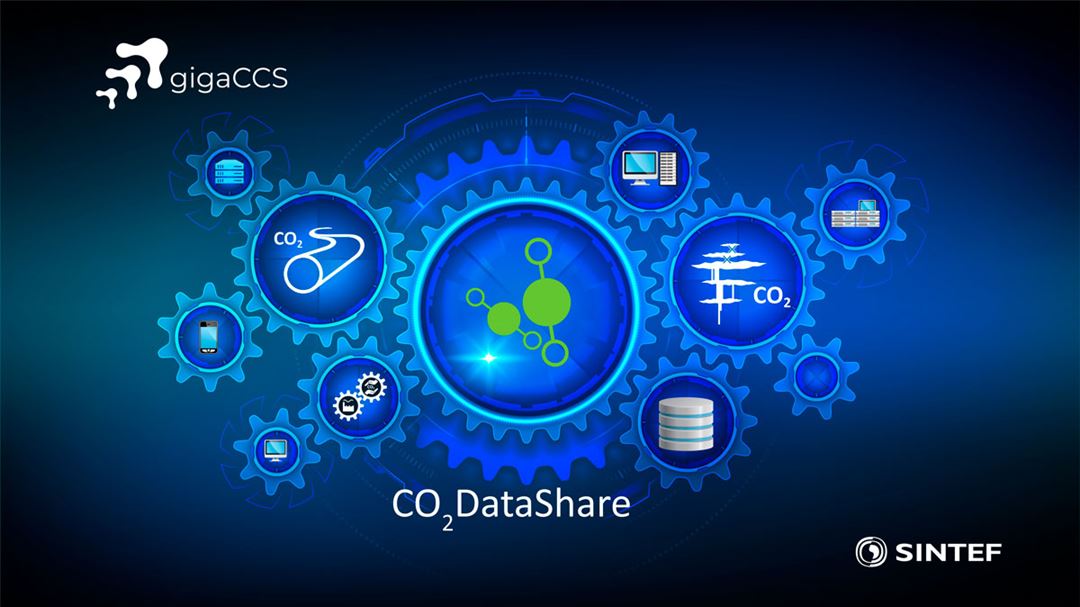In 2017 the CO2 Storage Data Consortium was established as an
international network aiming to make datasets on site geology as well as geophysical monitoring data, well data, reservoir data and models available to everyone. As a result, the consortium-driven project, CO2 Data Share, built and started to operate an international platform for CO2 storage data exchange.
Presentation of CO2DataShare at the UN Climate Change Conference 2022 (COP 27).
The CO2DataShare digital portal opened for public access in 2020. The first datasets available for downloading were the Sleipner 2019 Benchmark Model and Sleipner 4D seismic data from 2010. Soon after data from proposed CO2 storage sites in the Smeaheia region and the Illinois Basin Decatur project were also made available. From 2023 CO2Datashare is part of the Norwegian CCS Research Centre NCCS.
CO2 Data Share aims to:
- Promote research and technology development based on experience gained from demonstration projects and thereby accelerate the deployment of CCS,
- Operate a web-based, digital infrastructure as well as community activities,
- Provide simple measures for preparing and sharing CCS datasets from full-scale projects, field tests and research projects, lowering the threshold for data owners to share with the CCS community within the agreed terms of use,
- Make it easy to find, access and use well-documented datasets from pioneering CCS projects relevant for addressing technology gaps and reducing uncertainty,
- Stimulate the exchange of results from research using the datasets,
- Promote networking and research collaborations, and
- Advance research and capacity building within CCS.
Access to reference datasets and learnings from using the datasets will advance research and capacity building within CCS. Data exchange benefits the research community, industry, and public CCS stakeholders. Quality assured data is also crucial for developing and validating commercial models, technology and tools for safe and cost-efficient CO2 storage.
Ambition to expand
There is great international interest in the data available from the digital portal. CO2 DataShare has recorded thousands of downloads, by hundreds of organizations across more than 50 countries. The users include both research and industry.
Until 2023, the focus of CO2 Datashare has been on reference data from CO2 storage projects. Our ambition going forward is to expand the CO2 DataShare portal to cover data sets from the whole CCS chain, including CO2 capture and transport in addition to storage. This we plan to do together with NCCS.
We believe that access to quality data is key to knowledge and technology development, and will be essential for cost-efficient and safe CCS.
Project manager



